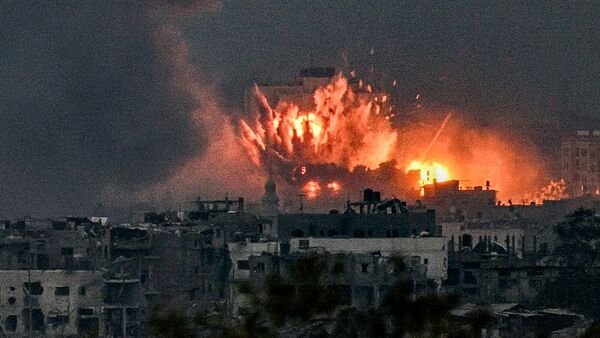After Hamas launched its horrific attack on Israel on October 7, many observers initially expected the war to remain a limited conflict between Israel and Hamas. Israel, Iran, and the United States each have reasons to avoid an expanded war. Israel has its hands full with its military response in Gaza, Iran likely wants to avert a potential clash with the United States, and Washington is not interested in a destabilizing regional conflict that would disrupt oil markets, fuel extremism, and draw attention from the war in Ukraine. Iran’s most important regional ally, Hezbollah, faces its own challenges in Lebanon, where a new war with Israel could deepen the country’s political and economic crises.
The wider neighborhood also has little interest in seeing this war escalate. Arab states such as Jordan and Egypt already face acute socio-economic problems, which would be exacerbated by the arrival of refugees. For countries in the Gulf, an expanded war would disrupt their ambitious economic development projects; it could also impede their efforts to repair frayed regional relationships and end ongoing conflicts in Libya, Syria, and Yemen. Gaza already faces a severe humanitarian crisis amid unprecedented Israeli bombing and expectations of a ground incursion, and large parts of Israel are the targets of regular missile attacks; no outside player wants to make a bad situation worse.
But the logical arguments favoring containment became much less intuitive after the devastating October 17 explosion at the al-Ahli hospital in Gaza City, where scores of displaced Palestinians were taking shelter. Despite contradictory explanations for the detonation and Washington’s assessment that Israel was not responsible, countries across the region—including Bahrain, Egypt, Jordan, Morocco, Qatar, Saudi Arabia, and the United Arab Emirates—squarely attributed the blast to an Israeli airstrike. Protests broke out in cities throughout the Middle East. As tensions rose, Amman cancelled a summit intended to bring Jordanian, Egyptian, and Palestinian leaders together with U.S. President Joe Biden after his visit to Israel.





